It seems a little sad to say but despite all of the wonders Ishigaki Island has to offer, one of the biggest deciding factors when I was choosing which island to explore were these monkeys. The adorable look on their faces, their tiny scampering feet and the promise of monkeys climbing all over you gave me flashbacks to my amazing time at that monkey izakaya in Utsunomiya. I wanted more, because if Japan has taught me one thing, it’s that I really love monkeys.
Coming from England, where the only place to see a monkeys is in a cage at a nearby zoo, seeing monkeys run wild around me was a dream I never thought I could make a reality. Yet now I have easily been to four wild monkey parks in different areas of Japan and this was definitely my favourite for a few reasons.
While I avoid hassling the animals in any way, in some parks the animals are just ridiculously friendly, usually because they want food from you, and this park was exactly that. I found the friendly nature of the animals the best I’d ever witnessed, though this may have simply been because they knew you had food. Small capsules of food could be bought from a nearby gacha machine for just 200 yen. The second you open that canister, monkeys rush towards you from all angles. You could have between one and four monkeys on your at any given time, all trying their best to grab some food. They were very keen but had a gentle touch. They were by no means aggressive or violent, they just wanted food and would do anything, even search in your pockets, to get their hands on it. I even played a trick where I was able to get the monkey to climb the whole length of both my arms to get to the food in my opposite hand, which was great fun. Just be careful, as the monkeys will try to pry open the food pod and, if they succeed, the food goes everywhere and you’re left monkey-less. Sometimes the monkeys will use you as an obstacle course regardless of whether you have food or not, but the way to ensure it is to purchase a food pod.
There is one park attendant there at all times to supervise, but there really is no need. They simply prompt you keep food out of your pockets and to keep your bag closed. I’ve even heard that they can open the zipper of a bag or purse, but I’ve never seen this myself. The monkeys are an absolute delight, from the elderly to the mothers with tiny monkeys on their backs. They simply embody the term “cheeky monkey” in every way possible.
The monkey park is located within Ishigaki Yaima Village cultural park, an authentic replica of Yaeyama Island range as it would have been before modern influences. Naturally, the place is filled with old, Ryukyu styled houses, interesting woodwork and even some old machinery they used to extract the famous Okinawan brown sugar (kurozato) from plants. You can buy this sugar in blocks or in an abundance of different snacks, my favourite being sugar coated peanuts. It’s even said to be healthy but I’m not sure how much I believe that. Still, it’s a good excuse to eat even more.
What’s best about Ishigaki Yaima Village is its relaxed atmosphere. The people, the sound of distant music and the quiet serenity of the area transported me back to simpler times. You could listen to performances throughout the day in various homes, visit traditional craft shops and even witness a giant vat of habushu (where a poisonous habu snake is fermented with alcohol). Other activities, such as walking on some very pointy stilts, having your photo taken in traditional Ryukyu style dress and seeing the impressive dangling trees, make the experience complete. There’s even a lookout point and a small mangrove hike, where you can witness the strange development of the mangrove forest, complete with fascinating insects and lots of tiny and cute crabs.
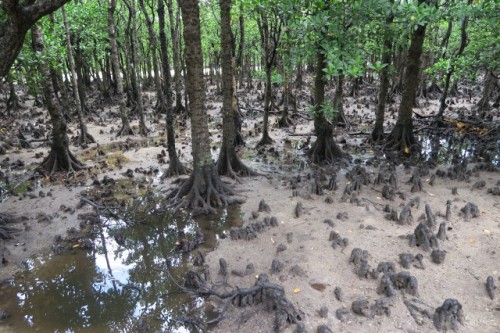
Without a doubt the monkeys, with their fantastic personalities, were the highlight of Ishigaki Yaima Village. And even though these squirrel monkeys are not indigenous to this part of the world, they seemed very happy and in high spirits. The whole family can enjoy this park for the price of only 1,000 yen for adults and 500 yen for children, with discounts for groups larger than 15 people. It is definitely worth a few hours of your time.
[cft format=0]
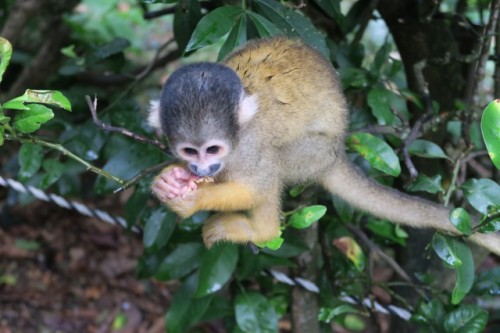
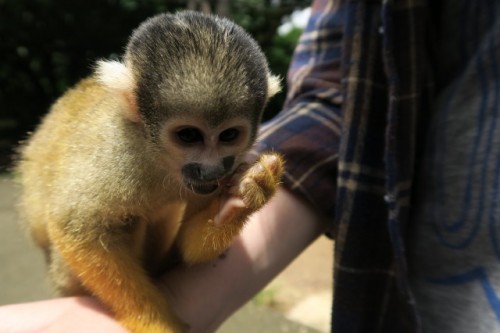
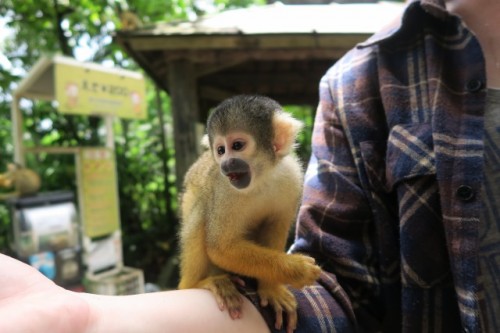
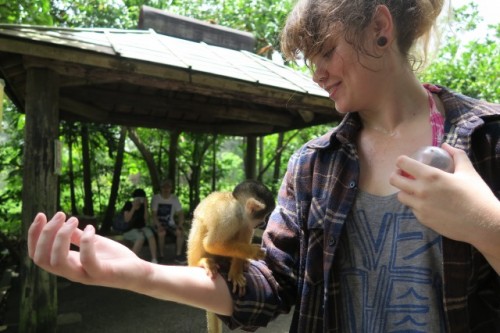
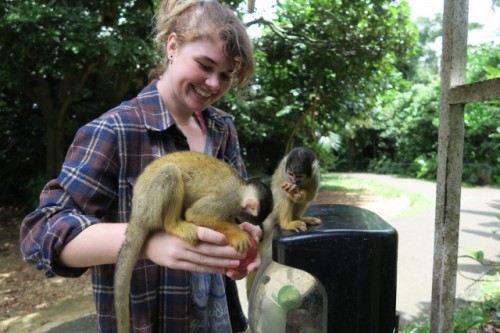
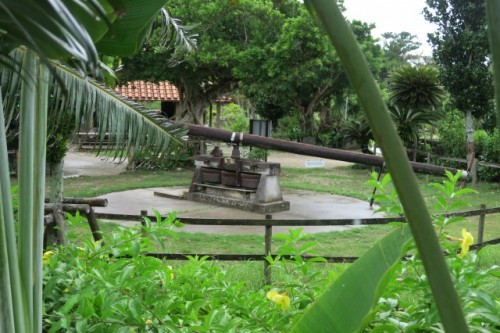
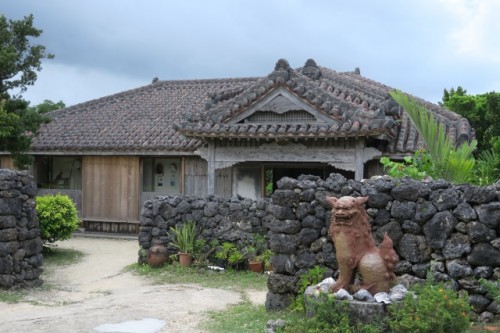
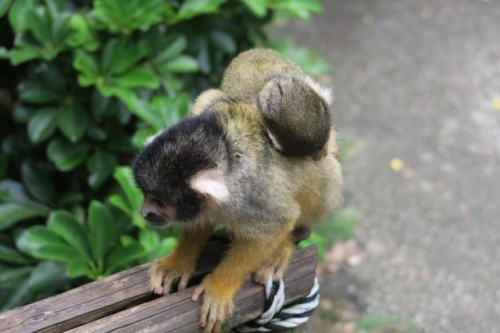
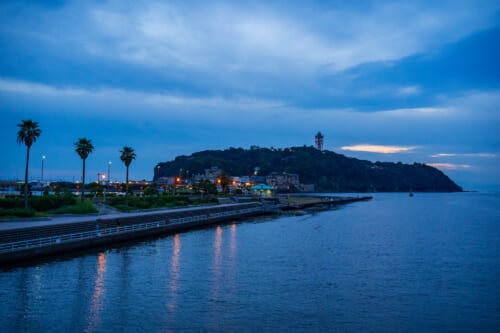
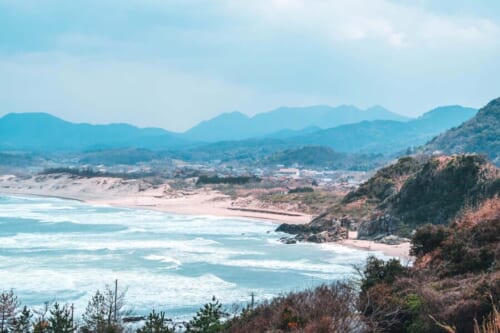
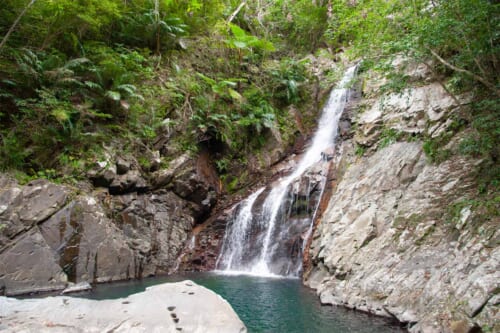
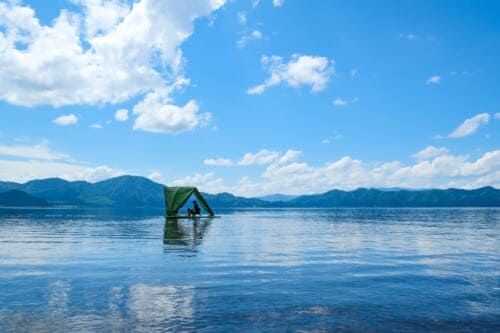
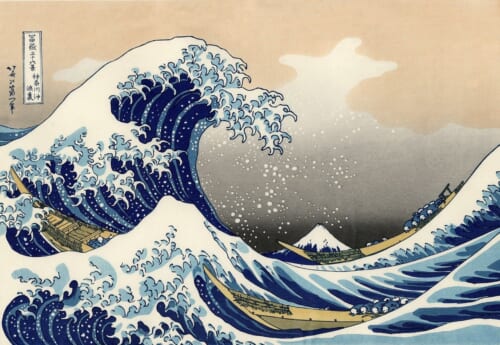
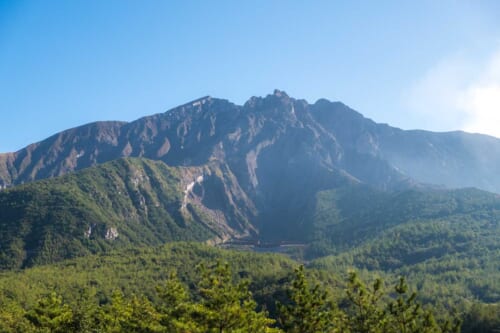
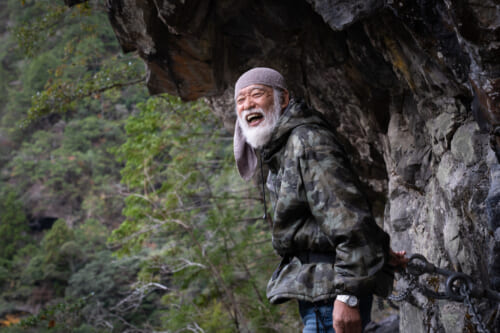


No Comments yet!